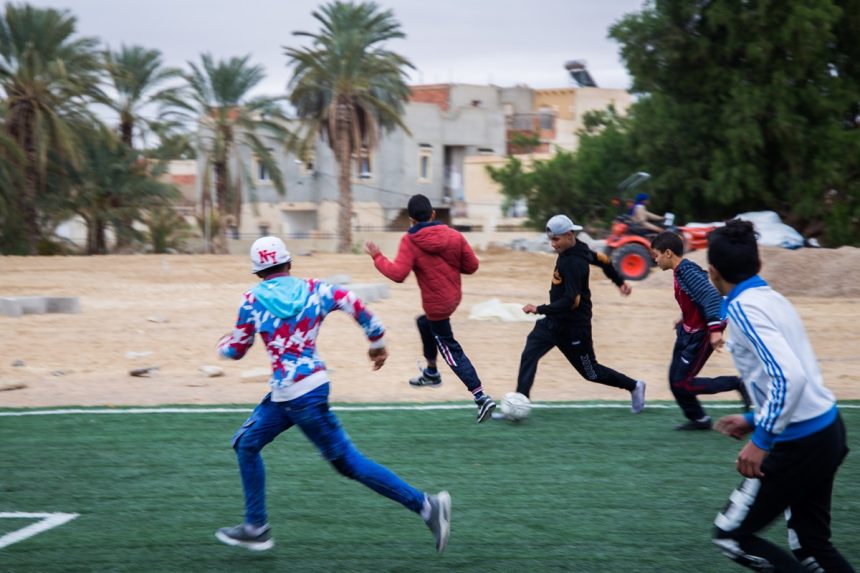Concussion Awareness in Football: The “Suspect and Protect” Initiative
- Suspect and Protect aims to elevate understanding of concussion-related risks, offering vital educational resources for all participants in the sport.
- Recognizing the signs and symptoms of potential concussions is crucial to enhancing player safety across all levels of football.
- This worldwide initiative has been launched in collaboration with the World Health Organization (WHO) and is supported by various FIFA Member Associations.
A Significant Step Forward for Football Safety
In alignment with its strategic objectives spanning 2023–2027, FIFA has introduced Suspect and Protect: No Match is Worth the Risk, a proactive campaign focusing on concussion awareness. This initiative was unveiled during the IFAB AGM held in March 2024, reinforced by a partnership with WHO.
The primary goal of this campaign is to underline that a concussion constitutes a traumatic brain injury that poses a threat to every athlete on the field. It enjoys widespread support from players, coaches, and medical professionals globally.
Resource Development Through Expert Collaboration
The Suspect and Protect program was shaped through extensive dialogue with experts in brain health from both FIFA Medical Team and WHO. It emphasizes enhancing recognition of key signs and symptoms related to concussions among players, coaches, medical personnel, as well as families. Notably, symptoms can sometimes take up to 72 hours post-injury to manifest. The initiative also provides strategies for safe return-to-play protocols following either suspected or confirmed concussive incidents. Its tailored resources aim at empowering stakeholders within national teams as well as local clubs across various levels—professional leagues down to amateur communities.
A Global Reach for Enhanced Safety Practices
This important campaign will be disseminated widely through FIFA’s communication channels while comprehensive toolkits are being shared with all 211 FIFA Member Associations for localized implementation.
FIFA President Gianni Infantino remarked on this effort: “Concussion should always be regarded seriously; playing football should be a safe experience enjoyed by everyone across the world.” He further emphasized that understanding how to identify effectively concussive events can prioritize player welfare significantly.
Dr. Tedros Adhanom Ghebreyesus, Director-General of WHO echoed similar sentiments regarding concussion’s implications beyond just football: “This public health concern demands heightened awareness at every level within sports circles,” highlighting why WHO proudly collaborates with FIFA towards protecting athletes’ brain health against possible injuries like concussions.
The Campaign’s Core Action Points
- AWARENESS: Whether you are an athlete, coach, medical staff member or caretaker—recognizing that a concussion represents serious brain trauma is imperative; hence knowing common indicators warranting immediate action is essential.
- SUSPICION:If an individual sustains any direct or indirect impact affecting their head or upper body areas—assessing them for signs indicative of a concussion becomes critical given such symptoms can often emerge after several hours post-injury.
- PROTECTION:If any signs arise indicating possible concussion risk—even if just one shows—it necessitates exiting play right away while seeking prompt medical evaluation within 24 hours thereof since symptoms could evolve rapidly following injury.
Your Mental Well-being Matters!
“No match holds more value than your long-term health.” – Acknowledging risks creates safer sports environments!
Editorial Highlights:
The Suspect and Protect alerts will make information accessible via FIFA platforms translated into Arabic, English French German Portuguese (Brazilian) Spanish along adapted versions based regional languages initiated by Member Associations themselves reporting inclusivity factors concerning language barriers.
An Overview on WHO’s Engagement Towards Brain Welfare:
WHO dedicates efforts towards fostering optimal cognitive development alongside neurological wellness catering demographics spanning entire life courses comprehensively implementing effective policies bolstering service provisions inclusive tracking advancements related research endeavors particularly emphasizing emphasis directed aiding low-middle income domains ensuring impactful nurturing! sustaining advocacy maximizing dialogues sectarian cooperation engaging crucial collab-picture sectors internationally essential pathways achieving substantial progress truly manifesting deserved investment positioning mental uplift priorities incredibly enduringly forwarding engagements oriented advocacy。[Explore more about WHO’s initiatives](https://www.who.int/health-topics/brain-health)






